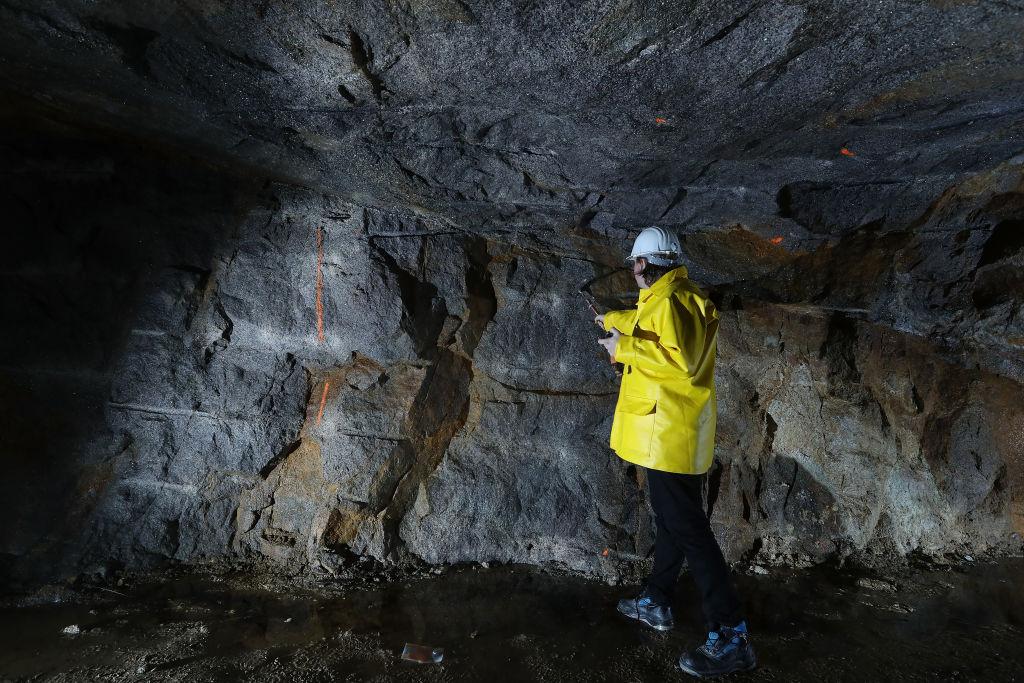Earning Potential in Basic Industries: A Look at the Best-Paying Jobs for Experts and Novices
Explore the high-demand, high-paying job opportunities in the basic industries for both experts and novices. Learn about the future of the industry and the skills needed to succeed.
Jan. 25 2023, Updated 7:12 a.m. ET

When choosing a career, it's important to think about the future of the industry. With increasing concerns about climate change, certain industries may face stricter regulations that could lead to job losses. Therefore, it's important to research the potential impacts of climate change on your chosen field before making a decision.
Basic industries are growing rapidly, resulting in high demand for various labor skills. Is a basic industry career worth it? What skills do you need to work in basic industries? What do basic industries jobs pay?

What are some examples of basic industries?
Companies in the basic industries provide the raw materials that other industries need to operate. For example, a corn-growing company supplies corn that can be used in human food, animal feed, fuel, and even pharmaceuticals. Mining companies are also part of this group, as they extract minerals like iron and lithium, which are used to make things like buildings and electric vehicle batteries.
Lumber companies also fall under this category as they provide the raw material for things like doors, homes, and paper. Similarly, oil drilling companies supply the raw material that is refined into fuel to power factories and transportation machines. These companies are crucial for the economy as they support other industries.
Exploring the Benefits and Opportunities of a Career in the Basic Industries
Working in the basic industries can provide stability, good pay, and opportunities to take on challenging tasks related to producing and supplying the materials that other companies need. Additionally, it can be rewarding to know that your work is helping other companies and industries succeed.
The educational requirements for jobs in the basic industries can vary. Some positions may require at least a bachelor's degree, while others only require a high school education. The amount of money you can earn will depend on your skills, experience, and the specific role you hold. Some of the highest paying jobs in the basic industries include:
Agronomist
Working for farming companies to guide their soil management and crop production, agronomists earn a salary of $36,000 to $130,000. You may earn more as you improve your skills and gain experience. The position usually requires a bachelor’s degree.
Agronomists Can Expect To:
- Analyze a customer's crop field for pests, weeds, nitrogen content, and any other risk factors that may effect crop yield
- Keep up-to-date on agricultural best practices in order to make expert referrals and suggestions
- Manage agricultural budgets for supply procurement
- Ensure proper training of all agricultural employees you oversee
- Perform tests on crops and analyze the results to measure the overall effectiveness of farming practices
- Oversee the application of seeding, pesticides, and fertilizers
- Sample soil to detect any noticeable changes in physiology that may affect crop yield
Where Do Agronomists Work?:
- Industrial Farms
- Government Agencies
- Research Institutions and Firms
- Universities
Geologist
Working for mining or oil drilling companies, these professionals earn a salary of $44,000 to $100,000. They usually need at least a bachelor’s degree.
Geologists Can Expect To:
- Perform field mapping in order to identify rock types and geological formations
- Perform data analysis for corporations in the fields of mining, oil and gas, and engineering
- Perform mud logging, rock core logging, and geotechnical logging to analyze the structure of potential mines and wells
- Work with 3D modeling programs to depict a clear picture of oil wells, mineral deposits, and aquifers
Where Do Geologists Work?:
- Mining Companies
- Oil and Gas Companies
- Civil Engineering Firms
- Government Agencies
Materials Scientists
These professionals work with companies that supply processed raw materials. A bachelor’s degree is usually required, and the salary ranges from $45,000 to $120,000.
Materials Scientists Can Expect To:
- Research and develop new products and testing methods
- Prepare solutions and compounds for use in a laboratory
- Analyze chemical substances to determine their composition
- Educate scientists on proper processing and testing procedures including safety practices, mixing processes, and ingredients
- Write reports on methods and findings
- Present research scientists and engineers
Where Do Materials Scientists Work?:
- Government Agencies
- Engineering Firms
- Industrial Manufacturing Facilities
Logger
For this entry-level job in the lumber industry, you may not even need a highschool education to be hired. You’d be responsible for cutting and loading timber into truck. Compensation ranges from $20,000 to $45,000.
Loggers Can Expect To:
- Cut Down Trees
- Operate Machinery that cuts down and clears felled trees
- Attach cables to felled trees so they can be dragged to a lumber yard
- Sort logs into types of wood and species at a lumber yard
- Grade logs according to various characteristics in order to determine value
- Perform safety checks on all equipment and maintenance to ensure well-functioning machinery
Where Do Loggers Work?:
- Lumber Companies
- Tree Removal Companies
- State Forest Associations
- National Forest Associations
- Tree Removal Companies
Metal Fabricator
This job entails cutting, shaping, and aligning metals for metal products or construction companies. Some companies may train you them selves, whereas other may prefer some experience of college training. The salary ranges from $14,000 to $50,000.
A Metal Fabricator Can Expect To:
- Interpret engineering blueprints and to mark bending and cutting lines
- Assemble structures from raw metal to create frameworks for buildings, bridges, automobiles, planes etc
- Perform quality control on all completed structures for imperfections and structural weak points
- Operate heavy machinery that are involved in the fabrication process
Where Do Metal Fabricators Work?:
- Manufacturing Plants
- Construction Sites
Future Prospects and Growth of the Basic Industries
Basic industries, such as those that supply raw materials to other industries, are often seen as stable career options. However, it's important to note that some sub-sectors, like oil drilling and mining, may face increased regulatory scrutiny and pressure to adopt sustainable practices in the future. This could have an impact on job prospects and the overall stability of these industries. It's important to research and consider these potential challenges when exploring career opportunities in the basic industries.
